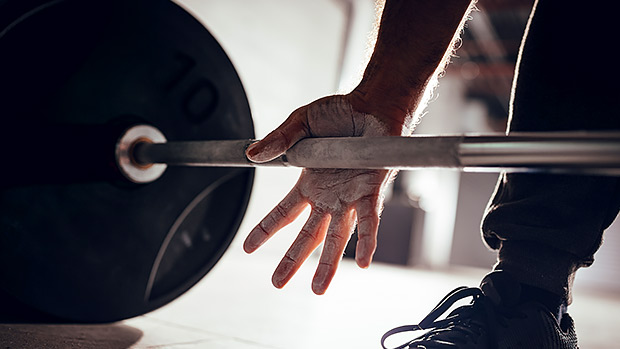Oh, hell0 (new) fitness professional.
Congratulations on (pick whichever pertains to you):
- (A) Recently graduating college with a Health Science, Health & Wellness, Exercise Physiology, Kinesiology, or History in Shakespearian Literature degree.1
- (B) Switching careers from accountant, computer programmer, or, I don’t know, professional mustache grower…to strength coach.2
- (C) Passing your weekend personal trainers course.
Welcome to the industry. Happy to have ya.
Guess what: You’re not that special.
It’s time to get to work.
Chances Are…
You decided to enter the industry under the guise you’d get to wear sweatpants everyday (a definite perk) and make a boatload of money.
You’d put in your dues for a few months at a local commercial gym, build a client roster, charge anywhere from $60-$150/hour, and then graduate to doing stuff solely online and, fingers crossed, eventually reach the holy grail and become a social media influencer.
Brb: I need to go throw up a little in my mouth.
I despise that term…influencer.
Some dork is all of a sudden an “influencer” because he has abs and posts shirtless pics of himself standing next to a Black Hawk helicopter?
How’d all that work out a few weeks ago when Facebook and Instagram went down for several hours and everyone’s influencing world came to a screeching halt?
Okay, I don’t mean to come across as a jaded, cantankerous curmudgeon. It’d be a bit hypocritical of me to poo-poo on the power of social media altogether.
I do owe much of my career to my website/blog/biceps.
That said, I’d be remiss not to offer a little dose of tough love and urge upcoming fitness professionals to heed the following piece of advice.
Social media is fleeting.
Think about: there’s nothing, nothing, preventing Facebook, Instagram, Twitter, hell, even MySpace (that still exists, right?) from pulling the plug tomorrow and reneging their platforms. I mean, granted, the likelihood of them abandoning billions of dollars in potential revenue is about as likely as me winning Kumite.
But still, it could happen.
And then what? The only thing you’re left influencing is a big fat NADA.
To be clear: I am not insinuating you should ignore the power of social media or not to use it to help grow your brand and/or business.
I am, however, in a not so subtle way, underlining the dangers of putting ALL YOUR EGGS into the social media basket.
What Will Separate You As a Fitness Professional From the Masses is to Not Be Like the Masses
I’m often asked by upcoming fitness professionals what they need to do to get to where I am in my career? What business books should they read? Marketing? Writing? No, wait, maybe they should invest in taking a course to optimize their SEO?
All are valid questions and I’m happy to offer direction.
But I’d be lying if I said my mouth doesn’t usually end up agape, flabbergasted at the question.
I’ve been a coach for 17 years and feel I’ve only just now started to figure shit out. It’s so frustrating because we live in a society that feasts on entitlement; that if you just read “x” book or take “y” weekend course, the world owes you a six figure salary and a roster of professional athletes.
One piece of advice I always give, and it’s an unpopular one is this…
“Spend – at MINIMUM – a year working in a commercial gym.”
I did this for the first FIVE years of my career and wouldn’t change a thing. Eric Cressey did the same thing. Mike Robertson too. Cassandra Forsythe, Dean Somerset, Jon Goodman, heck, I even think Mike Boyle has reminisced over long, arduous years as a commercial gym trainer as the cornerstone of his prominent career as a trainer and coach.
Many of the top names in the industry share the same common denominator: (former) commercial gym trainer.
For me it was the only way to marinate myself in misery.
- It was hard getting up at 3:45 in the morning twice a week to open the gym at 5 am.
- It was hard working at such a low salary and to try to make ends meet.
- It was hard working long hours, holidays, and weekends.
- It was hard to learn how to “temper” my coaching style to meet the needs of my various clients.
- It was hard dealing with different personalities and learning how to motivate people.
- It was hard. All of it.
Misery is a strong word to use in this scenario (really, I was just aiming for a good alliteration). However, it seems appropriate.
Those initial years helped make me resilient and prove to myself that I could “make it.”
Coaching people, in person, provided me with so many (life) skills that helped shape my career. Possessing the ability to break down someone’s squat and honing my scapular upward rotation assessment skills have proved invaluable.
But equally as invaluable has been the ability to hold a conversation and partake in small talk.
“Oh my god, YOU like Balrogs too? Did we just become BFFs?.”
Shit, get back in task Tony.
Focus, focus.
What the hell am I trying to say?
Get off Instagram?
No.
I am not here to rag on your desire to grow a brand on social media or to build an online business. Go for it. But both have a higher degree of actually happening if you concentrate on doing one thing; the thing many upcoming fitness pros fail to understand and respect.
GO COACH.
A lot.
That’s what will separate you from the masses.




